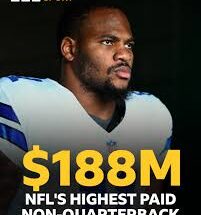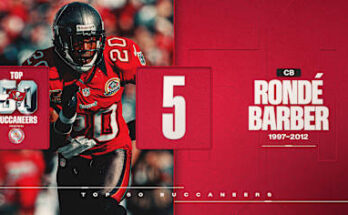Miami Heat All-Time Starting 5 — From paint dominance to clutch assassins, this lineup embodies everything Heat culture stands for.
From the moment the Miami Heat entered the NBA in 1988, the franchise has developed a unique identity built around toughness, unrelenting work ethic, and an unwavering commitment to winning. Over the decades, the Heat have produced iconic moments, unforgettable playoff runs, and an impressive collection of players who have left their mark on the league. Selecting an all-time starting five for this storied franchise isn’t easy, but when evaluating individual accolades, contributions to team success, cultural impact, and longevity, a clear lineup emerges—one that perfectly embodies the ethos known across the league as “Heat culture.”
At point guard, the selection comes with nuance. The Heat haven’t historically been known for elite, Hall-of-Fame-level point guards, but the most impactful player to fill that position is Tim Hardaway. Arriving in Miami in a mid-1990s trade with Golden State, Hardaway quickly became the floor general for a rising Heat squad. Alongside Alonzo Mourning, Hardaway helped transform Miami into a legitimate Eastern Conference contender. He made multiple All-Star appearances in a Heat uniform and was named to the All-NBA First Team in 1997, a rare feat for any guard, let alone one playing in Miami’s grind-it-out system. Hardaway’s quick crossover, fiery leadership, and ability to hit clutch shots earned him a place not only in the hearts of Heat fans but also in the team’s Hall of Fame history. While his tenure wasn’t as long as others, his impact was undeniable. He orchestrated an offense that perfectly complemented the bruising interior play of the late ’90s, and his competitive fire resonated with the blue-collar identity Pat Riley was building at the time.
At shooting guard, there’s absolutely no debate. Dwyane Wade is not just the greatest shooting guard in Heat history; he’s the greatest player the franchise has ever known. Drafted fifth overall in 2003, Wade wasted no time in elevating Miami to relevance. In just his third season, he led the Heat to their first NBA Championship in 2006, delivering one of the most iconic Finals performances of all time. Averaging 34.7 points per game against the Dallas Mavericks, Wade showcased an otherworldly blend of athleticism, finesse, and fearlessness. Beyond the stats, he became the face of the franchise. His selflessness was evident when he willingly took a backseat to LeBron James during the Heat’s Big Three era, resulting in four consecutive Finals appearances and two more titles in 2012 and 2013. Wade was the heart and soul of the team during its most successful years. He holds nearly every significant franchise record—from points to assists—and his leadership both on and off the court has made him synonymous with the word “Heat.”
At small forward, LeBron James earns the nod, even though he only played four seasons in Miami. But those four seasons were nothing short of legendary. James joined the Heat in 2010 as part of the most talked-about free agency decision in sports history, and the expectations were sky-high. Not only did LeBron meet those expectations, but he exceeded them. During his time in Miami, James won two league MVP awards, two Finals MVPs, and delivered some of the most dominant basketball performances the league has ever seen. He averaged 26.9 points, 7.6 rebounds, and 6.7 assists over his four seasons in a Heat uniform. More importantly, he embraced the defensive intensity and physical conditioning that defined Heat culture under Pat Riley and Erik Spoelstra. James’ two-way excellence, particularly during the 27-game winning streak in the 2012–2013 season, solidified his place in franchise lore. He wasn’t just a star—he was an apex predator, capable of taking over games on both ends of the floor. Despite the brevity of his tenure, LeBron’s impact on the Heat’s legacy is immense. His time in Miami marked the peak of his career, and his influence helped redefine the standard of success for the organization.
Power forward is a position with several options, but Chris Bosh is the player who best fits into this all-time lineup. Like LeBron, Bosh joined the Heat in 2010 as part of the Big Three. While he had been a perennial All-Star and dominant scorer in Toronto, Bosh made the conscious decision to change his role in Miami for the sake of team success. He sacrificed personal statistics to become a versatile, defense-first big who could stretch the floor, guard multiple positions, and make clutch plays when it mattered most. His block on Danny Green in Game 6 of the 2013 Finals and his rebound that led to Ray Allen’s iconic three-pointer are two of the most memorable plays in franchise history. Bosh wasn’t just a complementary piece; he was essential to Miami’s championship puzzle. His ability to space the floor allowed LeBron and Wade to attack the paint, and his defense kept the Heat elite on both ends. Unfortunately, his career was cut short due to blood clots, but his contributions during the championship runs and his willingness to adapt to a new role without complaint are a perfect representation of Heat culture.
At center, no one represents the grit and grind of the Miami Heat better than Alonzo Mourning. Acquired in 1995, Mourning became the cornerstone of the Heat’s rise to Eastern Conference prominence in the late ’90s. He was a two-time Defensive Player of the Year, a seven-time All-Star, and the emotional leader of the team. Known for his rim protection, intensity, and muscular interior presence, Mourning turned the Heat into one of the most feared defensive squads in the league. He helped establish the franchise’s identity as a team that never backs down. Even more remarkable was his comeback story. After being diagnosed with a serious kidney illness that forced him into retirement, Mourning returned to the Heat, eventually becoming a key contributor off the bench during the 2006 championship run. His iconic scream after a momentum-shifting block in Game 6 of the 2006 Finals perfectly encapsulates his passion and tenacity. Mourning’s loyalty, resilience, and leadership make him the clear choice to anchor the middle of this all-time starting five.
This lineup—Tim Hardaway, Dwyane Wade, LeBron James, Chris Bosh, and Alonzo Mourning—combines elite talent, positional balance, championship pedigree, and unmatched competitiveness. Each player contributed in ways that defined eras of Heat basketball. More importantly, each player embraced the hard-nosed, no-excuses mentality that Pat Riley and Erik Spoelstra have instilled as the foundation of the franchise.
These five players not only racked up individual honors and titles, but they also played roles in building the Heat’s reputation as a team that values toughness, discipline, and sacrifice. It’s not just about statistics with this group—it’s about attitude. Hardaway brought the edge and leadership that set the tone in the ‘90s. Wade brought the flair and fearlessness that ushered in Miami’s first title. LeBron brought the dominance that elevated the franchise to global relevance. Bosh brought the intelligence and adaptability that made a superteam work. Mourning brought the heart, the grit, and the defensive ferocity that became the franchise’s trademark.
Together, they form a lineup that could compete with the all-time greats from any other franchise. And while other talented Heat players—like Shaquille O’Neal, Glen Rice, Udonis Haslem, Jimmy Butler, and even Bam Adebayo—have made their own lasting contributions to the franchise, none quite match the legacy and symbolic value of this five-man unit.
Their resumes are impressive on paper, but what truly separates them is their alignment with the core values of Heat culture. They were never afraid of the moment. They embraced accountability. They were in peak physical shape. They outworked their opponents. And most of all, they were winners. This isn’t just an all-time starting five—it’s a snapshot of what the Miami Heat are all about. From dominance in the paint to clutch-time killers, from selflessness to swagger, from adversity to triumph, this lineup defines everything the Miami Heat stand for.



